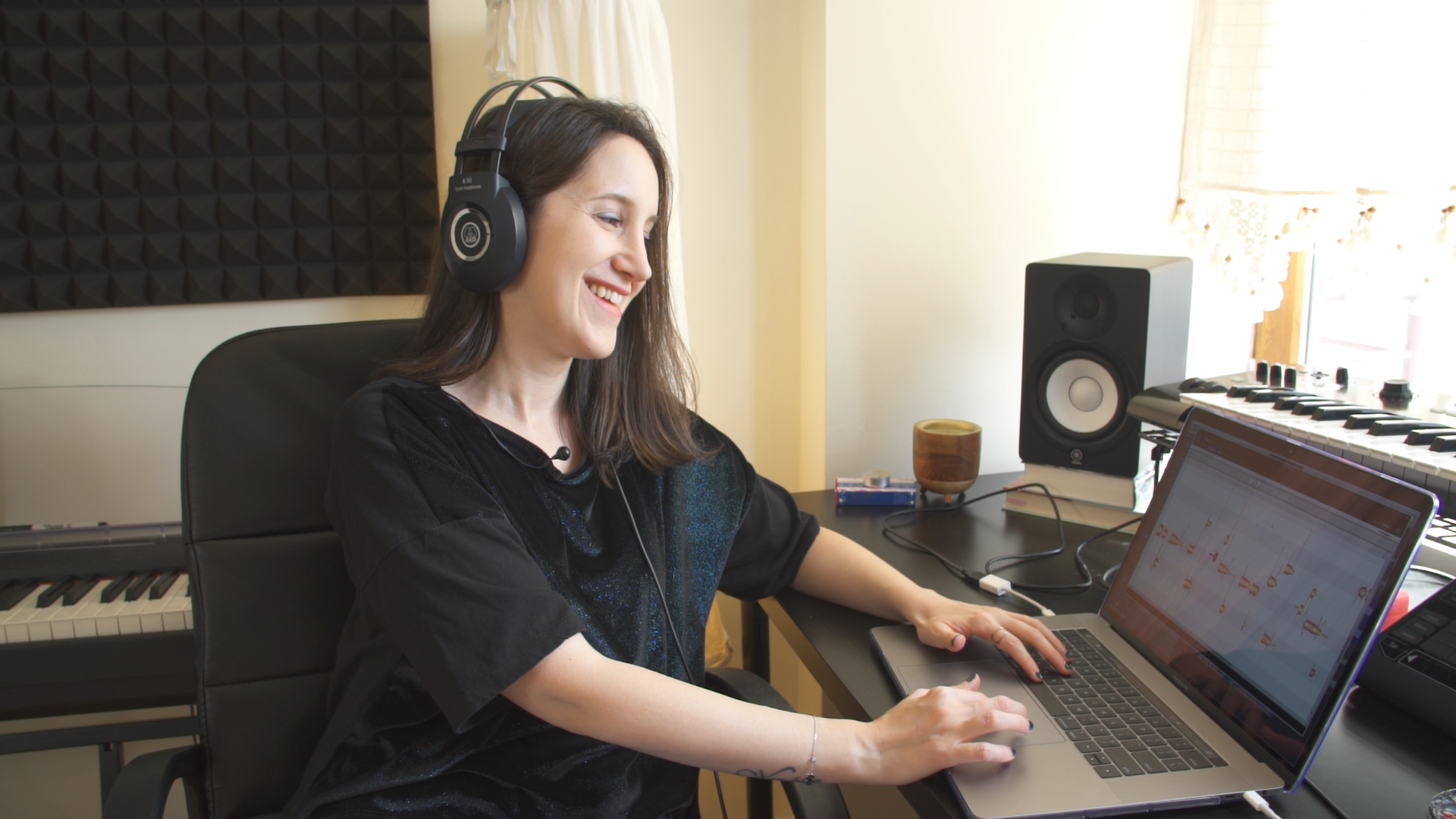Music producer’s guide to getting clients
While those working in a creative field like music production might not like to spend as much time on the small business side of things, finding clients is a critical part of building a successful career as producer.
Guest post from Notetracks on Soundfly’s Flypaper
No matter where you are in your career as a producer, this topic is always relevant! You’ll hear people talking about it at masterclasses, conferences, and everywhere between.
As artists and creatives, we often don’t like to deal with the business side of things. But as a producer, how you get clients can make or break your career. The difference between being a part-time hobbyist and a full-time producer hinges on how well you can help more people.
Develop Your Skills
As a producer, you will never stop learning and improving your skills in the studio. Before you start worrying about clients, spend time focusing on honing your craft. This applies to those starting out and those with a high level of experience as well.
We often hear about the 10,000 hours to become a master at something. If you spend an average of 20 hours a week in the studio, that’s only 1,000 hours a year! Realistically, it can take 10 years to master your craft. Not only does it take 10 years, the landscape shifts throughout your growth. This forces us to always learn, adapt and improve our skills.
Watch masterclasses, follow music producers as mentors, and dive into online music production courses like on Soundfly. Make as much music as possible and learn at every chance you get. Developing your skills will keep you sharp and competitive as you sell your services.
Identify Your Market
Knowing who your ideal customer is will help you stay focused as you grow your business. Many first time producers make the mistake of trying to specialize in all genres at once. They’ll spend time mixing heavy metal bands and producing underground hip-hop on the side.
While it’s possible to have a love for a multitude of genres, it doesn’t do you many favors when you’re trying to get clients. Working within multiple genres is great for inspiration. Unfortunately, your clients are likely coming to you because of a particular type of work they admire. Sylvia Massey made herself known as a heavy rock producer and engineer by coming up in the 1990s while that style was mainstream.
As you grow, you can expand your offerings and get closer to a Rick Rubin-type character — producing for many genres and styles. For starters, make a name for yourself as the producer who’s really good at vocal-centric pop music or lo-fi indie. Picking a genre you’re passionate about also helps you not burn out as you’re getting closer to those 10,000 hours!
+ Learn production, composition, songwriting, theory, arranging, mixing, and more — whenever you want and wherever you are. Subscribe for unlimited access!
Who Is Your Ideal Client?
Music producers come in all shapes and sizes. Some work with rappers to perfect the beat they’re vibing with. Others work strictly on scoring music for feature films. Who do you prefer to work with?
Many producers start by working with singer/songwriters and helping them build up songs. Others start by making beats and uploading them online for sale. Although you may be focused on one or two genres primarily, that doesn’t mean the type of work you do has to stay niche. Your career will grow as you seize unique opportunities when they come along.
A TV commercial may ask you to pitch an instrumental track or a big artist may ask you to collaborate on a track. Be flexible with the things you say “yes” to as you grow.
+ Read more on Flypaper: “5 Music Industry “Rules” I Broke (and You Should Too).”
Get Your Price Right
It’s important to do some research before charging your clients. If you charge too little, your clients might not see you as a professional. Every market is different and your first productions may only generate gas money. But later on, you may command a few thousand dollars for each project you work on!
Do research about other artists in your genre to see what they’re charging for their production services. If you charge too high, you might lose out on a lot of opportunities to grow with an artist.
Unless you’re just starting out, never do free work! You’ve done the research and you know how much you’re worth. Don’t be afraid to change your rates over time to adapt to your market. As you start to succeed, your rates will go up. If you work on songs that get big numbers on Spotify, you can ask future clients to pay more for your time.
You can also think about doing bulk rates or offer discounts to frequent clients. The occasional price reduction to returning customers could be a good idea. but be careful of how you bring it up. It needs to make sense and it needs to be justified.

Where to Find Your Clients
There are plenty of ways to find production clients. Over time, it’s most likely that you’ll grow by word of mouth. But early on in your career, you’ll need to be creative with finding your first musicians to work with! Below, we’ve outlined a ton of routes to pursue.
1. Personal Website
A personal website is very important. With a professional presentation and good SEO, you could generate leads with your site. Leads you get through your website are often the best leads you would want to work with too!
For them to reach out to you shows that they put in the time to research and find you. Use your website to highlight songs you’ve worked on. Give some information about yourself and be sure to include a contact email!
2. Online Marketplace
There are several websites which connect you to artists/producers looking for specific studio services. Among the most popular are SoundBetter and Airgigs. Here, audio professionals make profiles to advertise their services. Producing, mixing, mastering, and songwriting are all available for hire.
These websites are often review-based and it can take a while to build a sustainable income. Once things get rolling, they can become a good source of revenue though! Online marketplaces typically charge a fee for using the service. But if you’re trying to get clients, this can be worth the cost!
Take the time to build out your profile with examples of your work. This will help drive clients your way when they’re searching for help with a music project.
3. Online Classifieds and Communities
They’re not as popular as they used to be, but online classifieds can still be good to check out! There are also sites like Craigslist and Oodle that allow you to make local posts. Share information about your productions and see if you can connect with others in your area. For those just starting out, this could be a source of your first clients to build your reputation.
4. Social Media
Having a proper social media strategy is very important. You need to regularly maintain your Facebook page, your Instagram profile, and your Twitter account. Being active on these profiles does two things. First, it shows people that you’re active. It keeps them up to date with what you’re working on and what it sounds like.
Secondly, having a social media account allows you to increase your reach. You never know who will find your productions or your work. Make content that makes sense for each platform. Focus on videos and images that give value to your followers and watch your reach grow. Try to incorporate social media posting into your daily routine!
5. Collaborations
Stay open to collaborations as you meet new people. It can open up connections to other social circles or people in the industry. You never know what a jam session or writing session can turn into. Keep your options open as you develop a style and career path.
Also, working with other people is fun! You can spend time doing what you love and building relationships at the same time.
6. Facebook Groups
Facebook groups are another popular way to meet new musicians online. By investing time in these groups, you can build up relationships with musicians and creators. Share knowledge you have about the industry. Give back with comments and content. By engaging regularly, your client base will grow.
Musicians lurking in the groups may reach out organically. Or they may refer you to other friends they know. You can also build an audience for your own content channels like YouTube by encouraging others to check out your work outside of Facebook.
7. Meetups
Songwriting or producer meetups can be a great way to meet other like minded people. For starters, you can check your local area for musician meetups. You can also watch out for virtual happy hours on Facebook Events or Eventbrite. Because of COVID-19, many music meetups shifted online.
Getting creative, influencers and producers began hosting music-based Twitch streams. They range in production tutorials to reviewing music. Consider hosting your own virtual meetups regularly and offering something to the community. If musicians are interested in getting feedback on their song, sending it to a producer can be valuable!
8. Free Guides and Tutorials
You’re reading this guide because you surely have a certain level of experience as a music producer. I believe we can learn from everyone. Making free guides or YouTube tutorials allows you to interact and provide free and helpful information to others like you. When someone learns something from you, you build credibility. This credibility could lead you to have a following and a steady pool of future clients.
9. Local Concerts
Going to shows is fun! Although this pandemic has put a damper on live music for a while, things are starting to ramp back up. In a few months, attending a live show in your area can be a great way to get music production clients. You can introduce yourself to local bands or get to know fans in the audience who may be musicians too.
With so many producers focusing all their efforts online, you could meet tons of potential clients by just getting out and about more often.

10. Conferences
Conferences can be expensive. But they can also be the perfect place to grow your production business. Music conferences like NAMM have thousands of local and international musicians, producers, and technologists. Use these conferences to network with others who may be able to help.
Don’t be afraid to start up a conversation with someone sitting next to you! And don’t shy away from reaching out to someone in an online chat during a virtual conference either.
11. Music Licensing
One avenue to consider if you’re not producing for artists is music licensing libraries. Unused instrumentals may be a perfect fit for a TV placement or content piece.
If you’re producing regularly, music licensing can be an added source of revenue for your work. For starters, there are non-exclusive and exclusive licensing agreements out there. The former allows you to upload your songs to as many licensing libraries as you’d like. However, this isn’t without penalty. These sites often generate lower payouts if your song is used.
On the other hand, exclusive licensing agreements allow you to command higher rates to use your song. But they only allow you to be with one library at a time. Some popular licensing libraries include Pond5, Music Bed, Artlist, Music Vine, Premium Beat, Marmoset, Epidemic Sound, and Soundstripe.
12. Sync Agents or Publishers
You can also spend time building your production portfolio to attract the attention of sync agents or publishers. Sync agents license your songs to TV shows and film, usually with an exclusive contract. They’ll take your instrumentals and pitch them to decision makers.
Publishers may also come knocking if you’re producing high quality instrumentals and beats. They can place your songs with other artists.
Conclusion
There are many ways to find new music production clients. Depending on where you are in your career, some of these options may be available. Don’t be afraid to take new opportunities as they come. Try out different avenues to see which ones are right for you.
If nothing else, don’t stop making music! As a producer, your job is to always be trying to make better music. Share your work consistently over time and the work will follow.
What ways have worked for you to attract clients? Share below!
